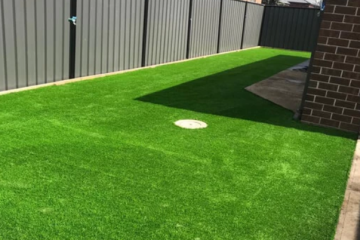As you research the real estate market, you could run upon the phrase “distressed homes.” Both buyers and investors face different chances and difficulties with these properties. We’ll go into what distressed homes are, why they’re available, and important things to think about if you’re thinking about purchasing one in this guide.
What are Distressed Homes?
Definition and Types
Distressed homes are those that are having financial problems, usually because the owner is unable to make the mortgage payments. They frequently fit into one of three categories:
- Foreclosures:properties where the mortgage lender has started legal action to reclaim the home because the owner has fallen behind on payments.
- Short Sales: Properties that owners sell to avoid foreclosure for less than the mortgage sum with permission from the lender.
- Real Estate Owned (REO): properties that the lender has repossessed following a failed foreclosure auction.
Why Buy Distressed Homes?
Opportunities for Buyers and Investors
- Lower Prices: Because distressed properties are often priced below market value, purchasers on a tight budget and bargain-hunting investors find them appealing.
- Investment Potential:Investors can buy distressed houses, make repairs, and then resell them for a profit (a strategy known as “fix-and-flip”), or they can keep them as long-term rental properties.
- Diverse Options: They provide a variety of properties to suit various investment plans, ranging from single-family homes to multi-unit buildings.
Benefits of Buying Distressed Homes
Cost Savings
Purchasing a distressed home instead of a traditional one can result in significant cost savings. For investors and first-time purchasers, this affordability creates opportunities.
Potential for Appreciation
With strategic renovations and improvements, distressed properties can appreciate in value, offering a solid return on investment over time.
Flexibility in Financing
Various financing options are available for distressed properties, including specialized loans for renovations (like FHA 203(k) loans) and investor-friendly loans.
Challenges of Buying Distressed Homes
Property Condition
Many distressed homes require significant repairs and maintenance, which can add to the initial purchase cost and time before they can be habitable or resold.
Complex Purchase Process
Buying a distressed home often involves navigating legal complexities, negotiating with banks or lenders, and dealing with potential delays in closing.
Risks and Unknowns
There may be hidden costs associated with repairs, outstanding liens, or legal issues that buyers must uncover during due diligence.
Steps to Purchasing a Distressed Home
1. Determine Your Budget and Financing
Calculate how much you can afford to spend, including renovation costs.
2. Research and Identify Properties
Use online listings, real estate agents specializing in distressed properties, and foreclosure auctions to find potential homes.
3. Conduct Thorough Inspections
Before making an offer, inspect the property thoroughly to assess its condition and estimate repair costs accurately.
4. Make an Informed Offer
Consider the property’s market value, repair costs, and potential resale value when making an offer. Be prepared for negotiation with the seller or lender.
5. Close the Deal
Once your offer is accepted, finalize financing, complete necessary paperwork, and prepare for the closing process, which may involve legal and administrative steps.
Renovating and Reselling Distressed Homes
Planning Your Renovation
Create a detailed renovation plan focusing on essential repairs and improvements that add value to the property.
Budgeting and Execution
Stick to a realistic budget and timeline for renovations. Hire reputable contractors distressed-homes and obtain necessary permits to ensure quality workmanship and compliance with local regulations.
Marketing and Selling
Stage the property effectively, use professional photography, and market it through multiple channels to attract potential buyers quickly.
Legal and Financial Considerations
Understanding Legal Implications
Be aware of foreclosure laws, potential title issues, and other legal considerations that may affect the purchase and sale of distressed properties.
Financial Due Diligence
Verify the property’s title status, outstanding liens, and tax obligations to avoid legal complications and unexpected financial burdens.
Conclusion: Is Buying a Distressed Home Right for You?
For purchasers and investors who are prepared to overcome obstacles and seize chances, investing in distressed properties can yield significant returns. Making wise selections requires knowing the ins and outs of any situation, whether you’re searching for an affordable place to live or for investment opportunities.
FAQs
1. What does it mean to buy a distressed home?
Buying a distressed home involves purchasing a property facing financial difficulties, often at a discounted price due to foreclosure or financial distress.
2. Are distressed homes a good investment?
Distressed homes can be a good investment for buyers and investors looking to acquire properties below market value and willing to invest in repairs and improvements.




